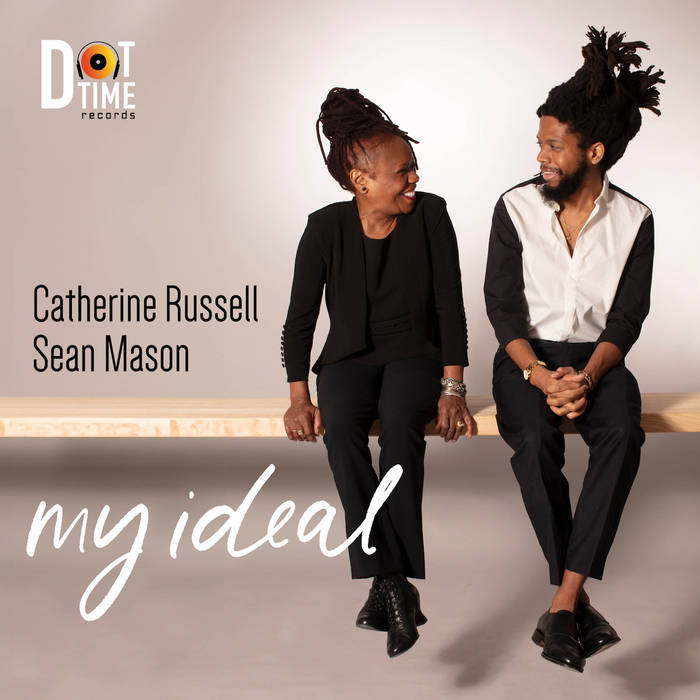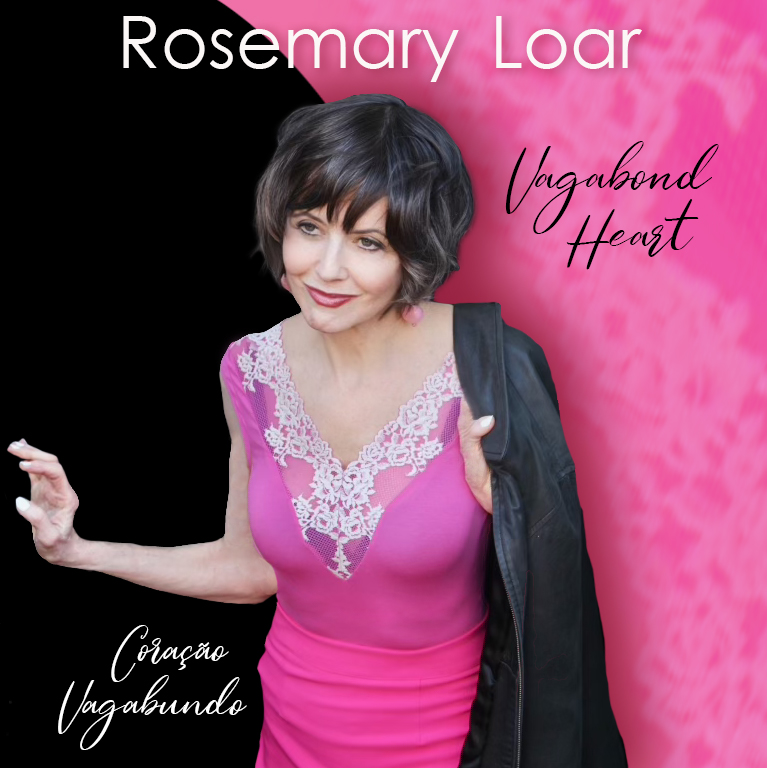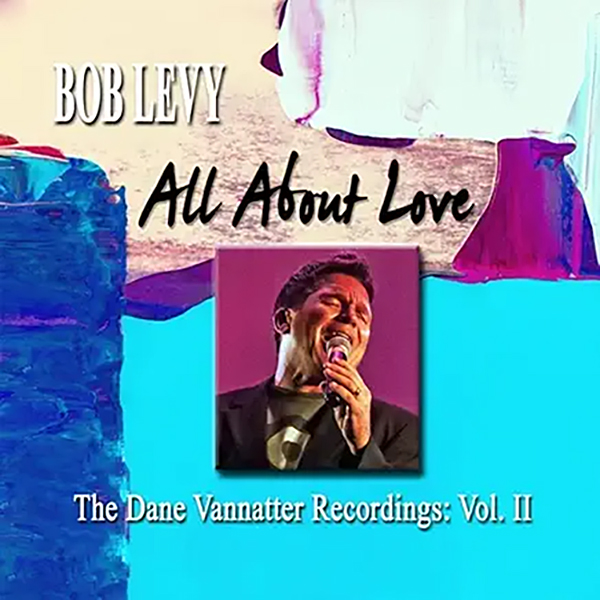Bistro Bits: Jazz Babies 2024–New Recordings by Russell and Mason, Loar, and Levy/Vannatter
A couple of weeks ago, writer Lisa Jo Sagolla discussed a number of new recordings on this site. But it’s a busy time of year, and there are many more recent releases that deserve some coverage.
So, for today’s Bistro Bits column, I’m taking a look at three recently released albums, all of which live on the jazzier side of the street. (Expect even more album reviews in a future column.)
My Ideal—Catherine Russell and Sean Mason
What a privilege it is to reside in a city that’s chock full of talented singers. Sometimes you’ll bump into more than one on the same block—if it’s the right block. There are a handful of vocalists, however, that rise above the crowd: ones I can’t resist going to hear whenever they have a new show.
Among them is jazz and blues singer Catherine Russell, who, in 2013, received a Bistro Award for her album Strictly Romancin’. As with Billie Holliday or Ella Fitzgerald, there is something in Russell’s vocal timbre so distinctive that I can identify her within a measure or two. It’s futile to attempt to adequately describe her voice, but when I try, I inevitably blather on about “sleighbells” or “little silvery bells.”
I heard Russell earlier this month at Birdland where, along with other material, she performed titles from her newly released album, My Ideal: a collaboration with the gifted young pianist Sean Mason. (Mason was not with Russell for the Birdland show. Instead, she was supported there by four musicians, including pianist Ben Paterson.)
My Ideal features only two music makers: Russell and Mason. This is a departure for Russell in the recording studio. And perhaps it’s a bit of a risk. Or at least you might think so before hearing Mason’s work. The album is an eclectic mix of attractive songs, and the fact that the performance has been pared down to just voice and piano allows us to experience Russell’s artistry in a fresh new way. The dividends are stellar. There are eleven tracks here and absolutely no duds.
Songs on the album (produced by Russell, along with Paul Kahn and Katherine Miller) come mostly from the early part of the 20th century: several that you will find familiar, some on the more obscure side. She starts with “A Porter’s Love Song (To a Chambermaid),” a 1930 charmer by James P. Johnson and Andy Razaf that was introduced at Small’s Paradise in Harlem in a politically tinged show called The Kitchen Mechanics Revue, celebrating the lives of service industry workers. “I am the happiest of troubadours, / Thinking of you while I’m massaging floors,” goes a lyric from the intro. Right off the bat you can see why Russell wanted to work with Mason. His playing is virtuosic, but he is always in sync with her, making sure she has all the support she needs. He provides delicate curlicues, gives us bold staccato chords with a Charleston rhythm in the last B section, and, in his long solo interlude, pecks the same high note adamently at one point, sounding something like a persistent rooster on a toy piano, trying to win the corn-kernel reward.
The album’s second song was written decades later and is part of a much-different genre: It’s the driving 1966 Ray Charles R&B favorite: “I Don’t Need No Doctor” (Jo Armstead, Nickolas Ashford, Valerie Simpson). The sound of passionate and desperate longing in Russell’s voice suggests that her character considers separation from her partner as a genuine matter of life and death.
An array of songs of varying sorts follows. “My Ideal” (1930), by Newell Chase and Richard A. Whiting—like “I Don’t Need No Doctor”—is a song of longing, or maybe “yearning” is a better term. The song’s protagonist wonders: Is the desired partner completely imaginary or is he out there somewhere, undiscovered? Russell gives this title track a very tender reading, and the piano interlude finds Mason playing a few Chopin-like phrases. 1954’s “The Best Things Happen While You’re Dancing” (Irving Berlin, from the Paramount studio film White Christmas) revels in warm romance, and Mason demonstrates how two human hands on a keyboard can create just as much pleasure for the ears as a full orchestra. “Ain’t Got Nobody to Grind My Coffee” is Spencer Williams’s bawdy, red-hot-mama song from 1926 (most closely identified with singer Clara Smith). Russell burns with crimson arousal throughout the song, which comes off as a kind of hymn to horniness.
My favorite song on the album is probably the rouser “Ain’t That Love”—written by Ray Charles in 1957 and heard on his debut album. Russell builds the gospel-ish excitement as she repeatedly considers Charles’s musical question. Then, at a point late in the song, she improvises an answer: “I think that’s love!” And soon after, she surprises us by turning down the volume and finishing the song in a quiet, cooing, gently teasing mood. It’s a perfect twist.
This album reminded me that Catherine Russell is not just a terrific singer but also a first-rate actor who can make believable a range of characters in all sorts of situations. Maybe that’s one reason why this roster of diverse songs seems absolutely cohesive. Another reason is the musicality of Sean Mason.
My Ideal with Catherine Russell and Sean Mason; Dot Time Records (2024).
Curação Vagabundo / Vagabond Heart–Rosemary Loar
Because Rosemary Loar seems so comfortable singing in the higher reaches of her vocal range—where she sounds ethereal, whispery, and waif-like—it’s possible to lose track of the wonderful things she can do vocally when she’s on the main floor, rather than up in the belfry. (She can also, now and again, visit the basement for a note or two—and she can sound great down there too.)
In her new collection of jazz-inflected songs, Curação Vagabundo / Vagabond Heart, Loar treats us to an array of sounds, using multiple colors from her vocal palette. The album includes fresh takes on several songs by Broadway songwriters: Cole Porter, the Gershwins, Lerner and Loewe, Bernstein and Sondheim. But there’s a Sting song, too, as well as the title track by Caetano Veloso and Gal Costa, on which Loar savors each Portuguese word as though it were a tasty Brazilian appetizer. (Gary Schreiner’s plaintive harmonica lines add immensely to this track—and to others in the collection.) Loar also includes four songs of her own creation.
Highlights among the covers are a sassy “Show Me” (Lerner/Loewe) and a mesmerizing version of Porter’s “Get Out of Town” that reconfigures the song’s rhythmic pattern and adds an odd non-Porter verse with uncredited lyrics that seem to be consciously quoting Rodgers & Hart’s “Glad to Be Unhappy.” Best of all is a fab rendition of the Gershwin brothers’ “Fascinating Rhythm” that becomes a kaleidoscopic collection of contrasting rhythmic patterns that eventually morphs into a trippy scat-athon. I found Loar’s versions of “Midnight Sun” (Sonny Burke, Lionel Hampton, Johnny Mercer) and “I Fall in Love Too Easily” (Jule Styne, Sammy Cahn) to be fine, but not quite as full of surprise as some of the other numbers.
Of the original songs, I especially liked the brashly swinging “Your Turn to Be Brave,” which I could imagine Peggy Lee singing, and “You Taught My Heart to Sing,” with a vamp that tricked me into thinking Loar was actually about to sing David Wheat and Bill Loughborough’s “Better Than Anything.”
The album was co-produced by Loar and her musical director and pianist, Frank Ponzio. Joining Ponzio and Schreiner as musicians on the project were ubiquitous bassist Tom Hubbard, drummer Vito Lesczak, and David Longworth on triangle and egg. They are all fine assets.
Curação Vagabundo / Vagabond Heart with Rosemary Loar; Atlor Music (2024).
All About Love: The Dane Vannatter Recordings, Vol. II (Songs by Bob Levy)
A follow-up to Bob Levy’s Ever Since We Met album (2023), All About Love is so called not just because it’s the name of the title track that opens the set, but also because all the songs in the collection, performed by versatile vocalist Dane Vannatter, are centered on love in its many incarnations. There are songs about ongoing love, threatened love, dwindling love, second-time-around love, and failed love. Levy wrote all the lyrics and some of the music. Other melodies were penned by Alex Rybeck, Harriet Goldberg, and Tracy Stark. Various musicians perform on the album’s 15 tracks.
I think it’s safe to say that most pop songs fall into the love-song category in some way. But, as anyone who’s tried to write a love lyric can attest, it’s challenging to keep the ideas fresh and the rhymes novel. For one thing, there are—famously—only a handful of English words that rhyme with the word love, namely: above, dove, glove, of (and its progeny, whereof, thereof, hereof), and shove. Levy plays with this very idea in a song on this album: “I Won’t Sing a Song About Love,” with a lyric vowing to stay away from any “glove-and-dove songs.” And, to a degree, he succeeds. I noticed no additional references to a dove in any songs on this album, and only a single reliance on a glove. On the other hand, Levy rhymes “love” with “shove” on three of the album’s first four tracks.
His best lyrics are those that have specificity – words that conjure images in the listener’s mind. One of the most welcome songs on the album is “New Year’s Eve Is Here Again”—partly because the world needs more good romantic New Year’s Eve ballads (if only to give Frank Loesser’s “What Are You Doing New Years Eve?” a break). Levy makes this new song memorable by giving us the conversational yet telling couplet, “We can share some caviar / Or peanut butter from the jar.” In another number, “What Else Can I Do?” (music by Rybeck), the protagonist admits to being the “quintessential dummy who broke the Golden Rule.” Nice!
Certainly, Levy and his co-writers have given singer Vannatter a cornucopia of songs with contrasting moods and colors. And the vocalist delivers. He could have held his own in an era when pop radio played Johnny Mathis and Jack Jones recordings on the regular. He can be suave and nimble on the jauntier tunes, such as “I’ve Got a Feeling” (music by Goldberg), but he’s best, I think, on the tender and bittersweet selections. One terrific thing that happens occasionally in this collection is that, when Vannatter reaches for the very rock-bottom notes in his lower range, he doesn’t exactly struggle, but he proceeds with caution. The resulting sound is gentle and vulnerable. It seems as though he’s trying diligently to use his words. That effect happens repeatedly during what I found to be the best song in the package: the bluesy yet stirring (almost martial) “We’ll Be Fine,” which really allows Vannatter to cut loose. It’s a “you and me against the big, bad world” kind of love song: one that shows a working partnership between likeminded partners. A moony/June-y element is not prominent on this track. Rather, a mature and abiding love suffuses the song through every measure.
All About Love: The Dan Vannatter Recordings: Vol. II. Songs by Bob Levy. Silk River Music (2024).
###
About the Author
Mark Dundas Wood is an arts/entertainment journalist and dramaturg. He began writing reviews for BistroAwards.com in 2011. More recently he has contributed "Cabaret Setlist" articles about cabaret repertoire. Other reviews and articles have appeared in theaterscene.net and clydefitchreport.com, as well as in American Theatre and Back Stage. As a dramaturg, he has worked with New Professional Theatre and the New York Musical Theatre Festival. He is currently literary manager for Broad Horizons Theatre Company.







